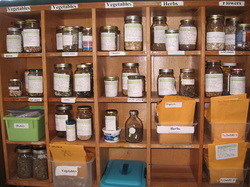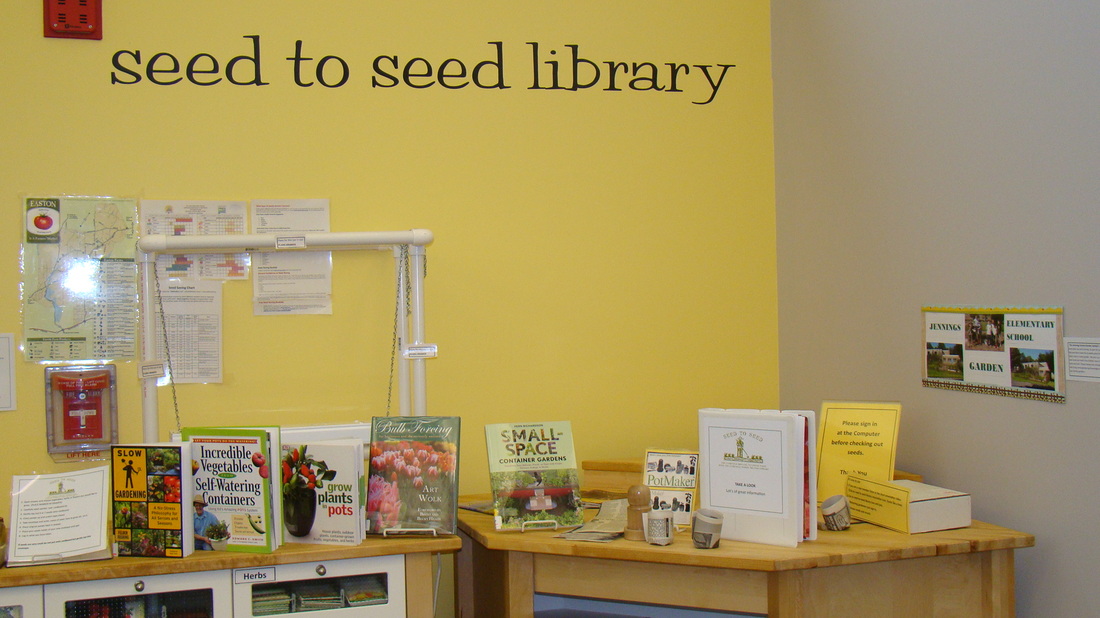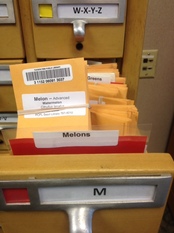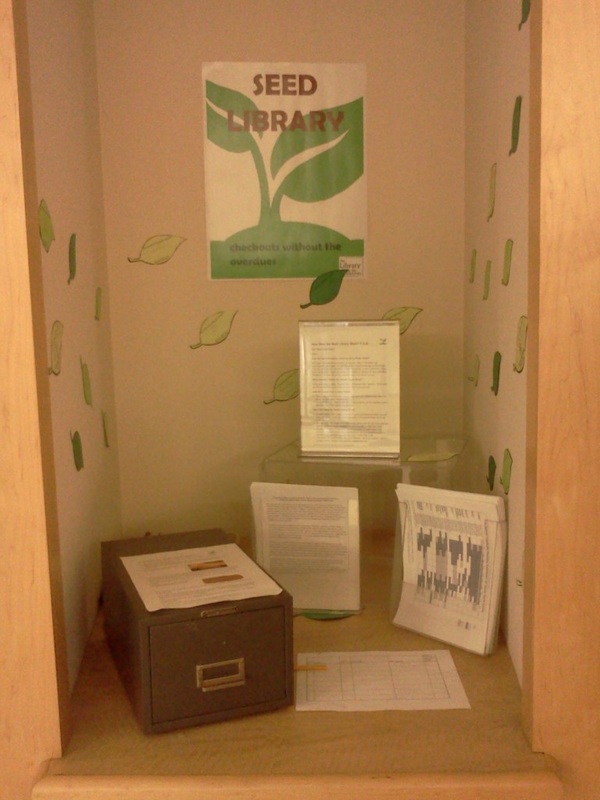Featured Seed Libraries
A Sampling
Bay Area Seed Interchange Library (BASIL)
Location: Ecology Center, Berkeley, Calif.
Started: 1999 Organizers: Community volunteers Special Notes: First seed library to open in the US. Have a very cool, downloadable planting guide for the SF Bay Area. Have a Curate-a-Crop program to get community members to grow out special varieties. Original organizers and inspiration include Christopher Shein and Sascha Scatter with Terri Compost maintaining it for over a decade...until the soil was fertile for the idea to go fungal. Thank you, BASIL! Website: ecologycenter.org/basil Community Seed ExchangeLocation: St. Stephen's Episcopal Church, Sebastopol, CA
Started: 2009 Organizers: Transition Town initiative; 10 core members run it Special Notes: Have a community seed garden on the church grounds and have weekly work parties. Seed collection is almost 100% locally grown. Seed library is open once a month and classes are offered. Website: CommunitySeedExchange.org |
Fairfield Woods Seed-to-Seed Library
Location: Public Library, Fairfield, CT
Started: 2010 Organizers: Public Librarians Partners: Special Notes: Have a garden on site connected to children's learning and connected to the Square Foot Gardening Idea. Go into the local schools and teach about gardening, including an after school program. Have a CSA pick-up at the library and a raingarden demonstration program. Courses Offered: Lacto-Fermentation, Website Seed Library of Pima County Public Library
Location: Public Libraries, Pima County, AZ - includes Tucson
Started: 2012 Organizers: Librarians - initiated by Justine Hernandez Partners: Native Seeds/SEARCH, Community Food Bank of So. AZ & Pima County Master Gardeners, community volunteers Special Notes: Has 8 seed library branches throughout the county with inter-library loans of seeds throughout all county branch libraries. Seeds are searchable on the library database. Circulation data shows that about 60% of seeds are from locally saved and shared seeds. Website: library.pima.gov/seed-library Mountain View Public Library Seed LibraryLocation: Mountain View Public Library, Mountain View, California
Started: April 2013 Organizer: Emily Weak, Librarian (no longer works there) Partners: No official partners, but all seeds have been donated, either by the community or Seed Saver’s exchange. Local gardeners Patricia Larenas and Hillie Salo have taught classes. Community members also help repack seeds to keep the library stocked. Special Notes: We try to support gardening at all levels. Events: Plant exchange in the spring, crop swap in the fall. Presentations and field trips as we can arrange them. Participating in the 2014 inaugural year of Silicon Valley Grows (one community, one seed). Website |




